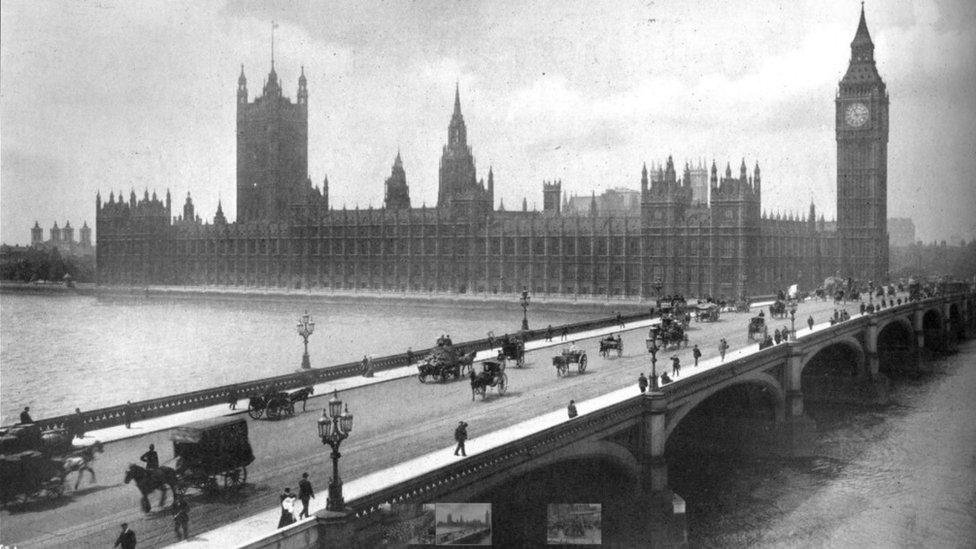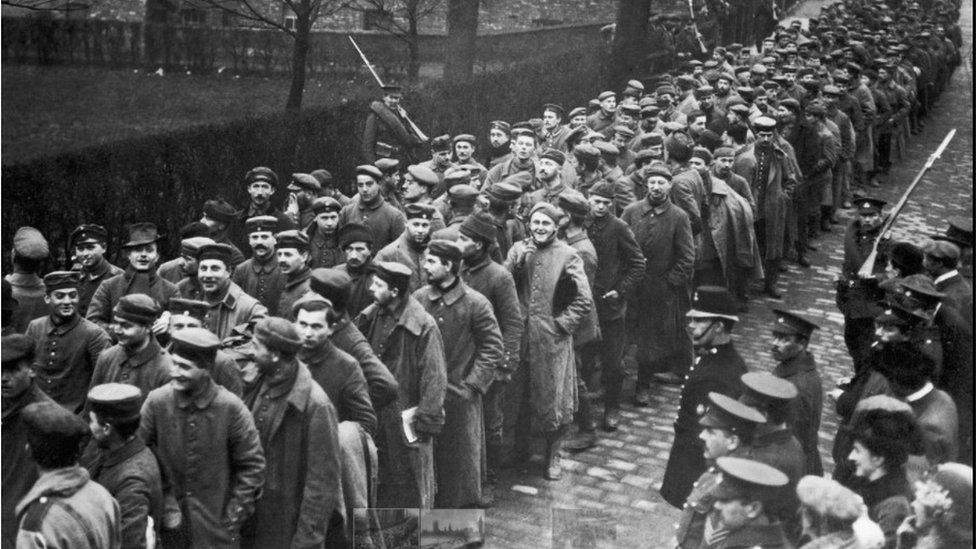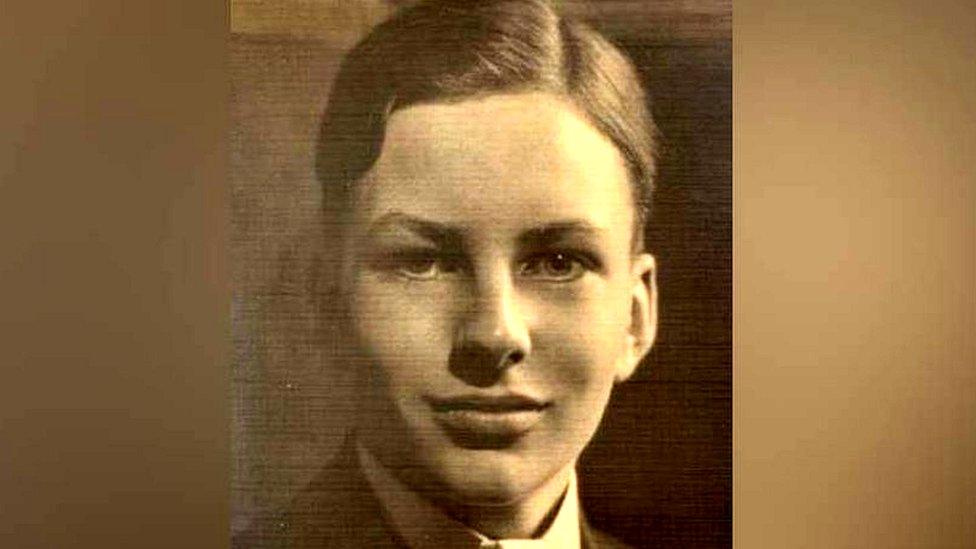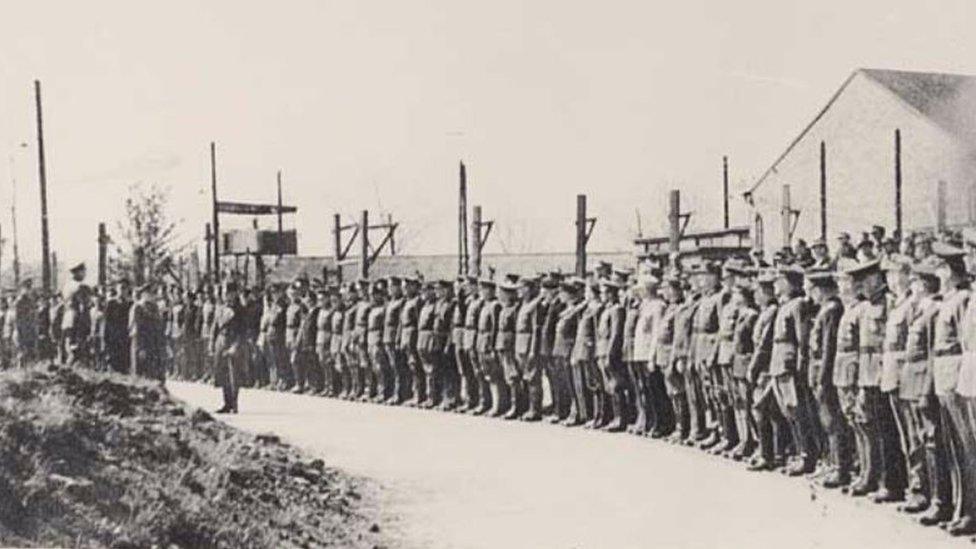World War One: German dressed as woman to avoid capture
- Published

Heinz spent time in London dressed as a woman, avoiding capture
As World War One drew to a close, a German officer masqueraded as a glamorous woman to avoid capture.
Lt Heinrich Ernst Heinz had twice escaped prisoner of war camps, and was at one point living in London.
But why did he travel to Cardiff to hand himself in to the authorities in October 1918?
Historypoints.org has set up 2,000 points in Wales, external where people can receive on-the-spot historical information straight to their phones.
A QR code, which links to Lt Heinz' story, has been placed on the lamppost outside what was Cathays Park police station, near Cardiff Crown Court.
There was a lot of press speculation at the time, and Historypoints.org editor Rhodri Clark said: "One theory was that the war reports in the Western Mail - when the Germans were close to defeat - had affected his resolve.
"Another idea is that he'd caught influenza. Europe suffered a flu epidemic in 1918 and 1919."

German prisoners pass through Handforth, Lancashire, on their way to Queen's Ferry Camp prisoner of war camp in 1915
The second escape was from a camp in the Yorkshire city of Wakefield, and it is thought that after this he spent a weekend living "the high life as a glamorous woman" in London.
Newspaper reports of the time said he "expertly disguised" himself, in such a convincing way that "nobody would notice he was a man".
A report in the Western Mail on 30 October 1918 said: "Of slight build, with an effeminate appearance, the lieutenant makes up well as a girl of innocent countenance and attractive mien."
However, on the Sunday following his weekend in London, the Western Mail described him travelling by train to Cardiff.
He stayed at the city's Angel Hotel under a name that had "a good old British ring about it".
'Quirky tale'
By now he was "quietly dressed" in a dark lounge suit and a fawn-coloured overcoat, and could have been a commercial traveller arriving ahead of business on Monday.
The newspaper said nobody suspected who he was and no questions were put to him, making even more intriguing the fact that he handed himself in.
"We've featured the stories of many prisoners of war," said Mr Clark.
"Some are stories of hardship, neglect or cruelty, and some are about ex-PoWs who found happiness and prosperity in Wales, but this story is in a class of its own."
He hopes the new QR code will enable people to discover the "quirky tale" from the closing weeks of the war as they walk past the court buildings.

SURVIVING HELMAND: Inspirational stories from those deeply affected by the conflict in Afghanistan
TIP NUMBER 7: The families of Aberfan fight for justice

- Published23 October 2021

- Published7 March 2020
